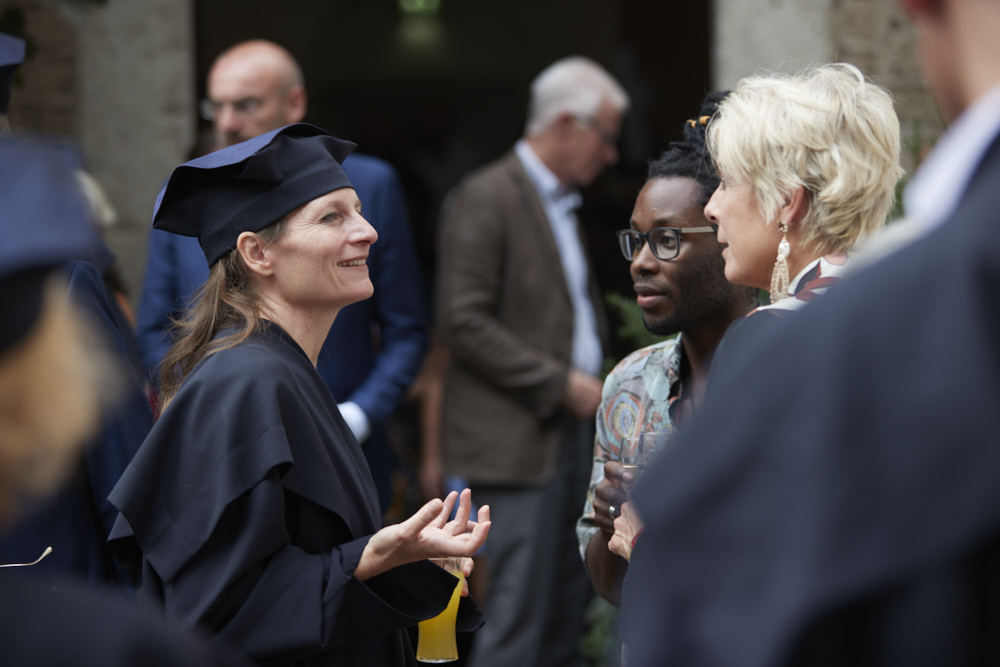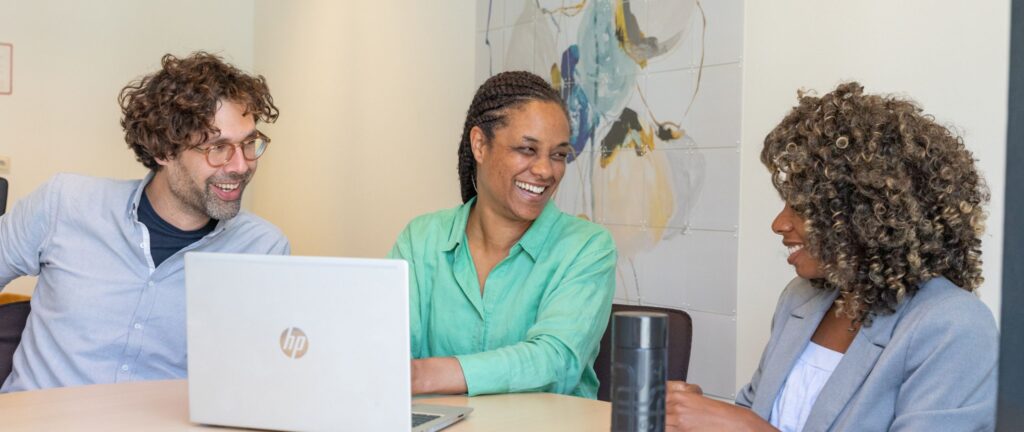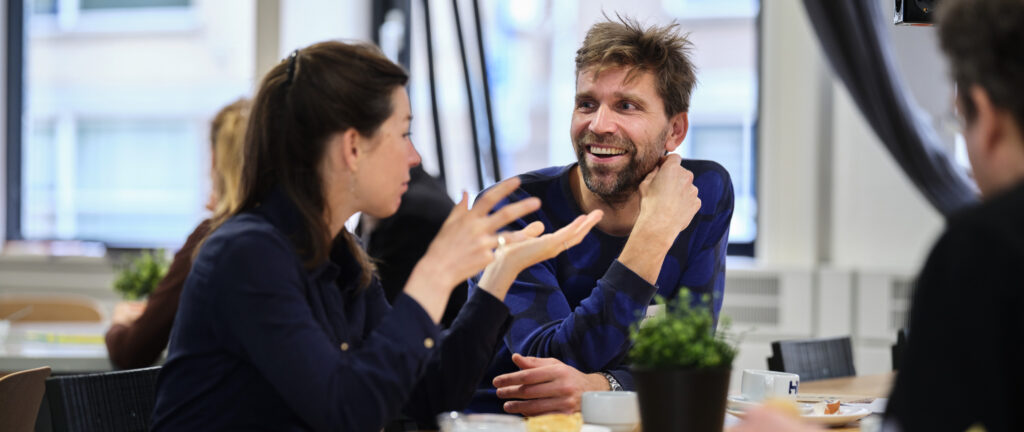Arriving and living in Utrecht
Before you leave your home country you need to make arrangements for arriving and living in Utrecht. Be prepared!
Checklists
We have created checklists for international students studying at the University of Humanistic Studies. This checklist will help you make sure you have prepared everything you need before you arrive in the city of Utrecht, where the university is located.
-
Checklist before arrival
- Arrange accommodation
- Make an appointment to pick up your key(s) and housing contract
- Arrange/check your health insurance (legally required) and liability insurance (highly recommended). Bring proof of insurances
- A valid passport or ID card for EU citizens (for at least one month after your departure from the Netherlands).
- 2 passport photo(s)
- Send the documents for your residence permit (if applicable)
- Cash or cheques to cover expenses in the first week or two
- A credit card (Visa or Mastercard) is highly recommended
- Check with your bank about credit card and ATM use in the Netherlands
- Read the information for exchange students on the website of the University of Humanistic studies
- Make arrangements for travelling from the airport to Utrecht
-
Checklist upon arrival
- Pick up your key(s) and housing contract
- Pay rent and deposit
- Visit the International office and meet your Erasmus coordinator and buddy
- Pick up your student card from your coordinator
- Check if you have received your university internet account details and password
- Attend the University orientation
- Buy a (second hand) bike (highly recommended)
-
Checklist departure
At the end of your study period, you need to make arrangements to leave Utrecht and the University of Humanistic Studies.
- Request an official transcript of records from the international office (io@uvh.nl).
- Hand in the keys of your accommodation
Useful information
-
Entry visa and residence permit
An entry visa (MVV in Dutch) is a sticker in your passport issued by the Dutch Embassy or Consulate in your home country (or the country in which you legally reside) which you may need to enter the Netherlands.
A residence permit is a card that shows that you legally reside in the Netherlands.
Whether you need just a residence permit/ a residence permit and an entry visa depends on your nationality:
Not applicable:
EU/EEA Nationals
Residence permit only:
Australia
United kingdom
Canada
Japan
Monaco
New-Zealand
South Korea
United States
Vatican City StateEntry visa and a residence permit:
all other countries -
Accommodation
Utrecht is one of the most popular university cities in the Netherlands. As a consequence, the demand for student housing in and around Utrecht is extremely high. Dutch universities do not own any student housing, and students are responsible for securing their own accommodation. We advise you not to come to Utrecht for your studies unless you have secured proper housing.
We strongly recommend that you start looking for accommodation as soon as possible. Most students in Utrecht live together with several students in a student house or apartment. The rooms might be small compared to what you are used to. Most of the houses have a shared shower, toilet, kitchen and living room with other students. Men and women often live together in a house. An average room in Utrecht costs somewhere between € 600 and € 1,000 per month.
Be aware of scams, don’t trust it if the offer is too good to be true, if you are unable to view the room beforehand of if you are put under pressure to transfer money before/without a viewing.
To help you on your way, we have created a list of websites and (English) information about student housing in Utrecht:
You could also consider placing a room wanted add on the Facebook group of Humanistic Studies or the Facebook group Erasmus Student Network Utrecht. You could also join Facebook pages like ‘Rooms for Rent in Utrecht’ or ‘ Find a room or house in Utrecht’.
Hostels
Some students stay in hostels for the first week or so when they move to a new city. Some popular hostels among students here in Utrecht are stayokay and wearebunk.
-
Insurance and emergency
Insurance
During your stay you must be properly insured. Information about healthcare and other insurances can be found on the website of Study in Holland. You must carry health insurance during your stay in the Netherlands, and this is mandatory by Dutch law. The medical costs are high, so make sure that your health insurance covers the Dutch rates.
Emergency and health services
If you need medical assistance or emergency services (ambulance, police or fire brigade) you can use the following information:
- Ambulance, police or fire brigade: call 112 (this is the general European emergency number)
- Doctor, Dentist or Pharmacy: find one in the yellow pages
- Medical assistance outside of your doctor’s office hours: call 0900-4501450 (is doctor’s post or, in Dutch, Huisartsenpost).
This website is for all students who currently (or soon will) live in Utrecht and who have questions about their health: Studentenzorgwijzer.
Make sure you always carry proof of health insurance with you, as you will need it whenever you use one of the health services in the Netherlands.
-
Expenses
Education expenses
There are a number of education expenses that all students will be liable for as appropriate. Such expenses may include field trip costs, books and printing.
Daily expenses
When you live in another country, you must take into account the costs of housing and insurance, but also daily expenses such as food, public transport, books and clothing. More information about the daily expenses in the Netherlands can be found on the website of Study in Holland.
Dutch bank account
For students with EU/EEA or Swiss nationality who have a bank account in their home country, it is not strictly necessary to open a Dutch bank account. It is necessary to bring a credit card if you do not open a Dutch bank account. With a credit card you can pay at the university, something that is not possible with a non-Dutch debit card. We also advise you to open a pay pal account. For more information we advise you to contact your own bank. If you want to open a Dutch bank account you will need the below:
-
- Valid identification
-
- Proof of enrolment at the university
Funding your exchange
At some point, most students in the Netherlands encounter the Dienst Uitvoering Onderwijs, commonly known as DUO. This organisation is mostly known for providing Dutch students with student finance and the student travel product. Depending on residency status, course registration and age, international students can also get funding from DUO. You can find all information about the requirements and the amounts on DUO’s website for international students: Student finance – DUO.
-
-
Sports at Olympos
Students and staff members of the University of Humanistic Studies can make use of the activities offered by Utrecht University’s Olympos sports centre. No less than 85% of people doing sports at Olympos are students. That’s why the atmosphere is so relaxed there. And there’s no shortage of activities to choose from, with more than 70 different sports on offer! You will not find as many sports nor as many students anywhere else in Utrecht.
Information resources and organisations for international students
When you come to the Netherlands, there are regulations and laws that will affect your stay. In order to inform you in the best possible way, visit Study in NL by Nuffic, the starting point for all international students who are considering the Netherlands as a study destination.
The Erasmus Student Network (ESN) has a department in Utrecht. ESN creates platforms for international students to meet each other and local students. This is achieved through cultural, social and sporting events. You can also go to ESN Utrecht if you want help or advice about your stay in Utrecht.
Access is a Not-for-profit organisation supporting the international community in the Netherlands.
Expat Center Utrecht is an One-stop shop for international people living in Utrecht, by the municipality of Utrecht.


